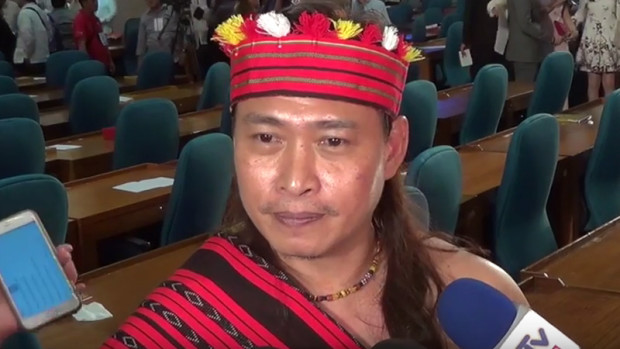BAGUIO CITY—Is the country prepared to see a 9-year-old child put to death for committing a heinous crime?
That’s a very likely prospect if a supermajority in Congress decides to classify 9-year-old offenders as criminals to be jailed with adults, Ifugao Rep. Teodoro Baguilat Jr. said here on Friday.
Baguilat and groups that compose the Child Rights Network drummed up support to block six House measures, including House Bill No. 2, filed by Speaker Pantaleon Alvarez, which would restore the age of criminal responsibility from 15 to 9.
Baguilat said the proposed amendments to the juvenile justice law (Republic Act No. 9344, which was amended in 2013 with RA 10630) are part of a two-pronged anticrime legislative agenda, starting with the proposed restoration of the death penalty.
Because a supermajority in Congress has vowed to pass the measure reinstating the death penalty, many people have been concerned about child offenders convicted for heinous crimes, “unless we introduce a provision that juveniles are exempted from the death penalty,” Baguilat said.
RA 9344 already exempts child offenders from the death penalty.
“But what happens when they grow older [while in jail for brutal crimes]?” Baguilat asked.
The prospect of a supermajority support for Alvarez’s version of the juvenile justice amendments has prompted groups to campaign against changes to the law, Baguilat said.
Restoring the age of criminal liability to 9 would be a “regressive act,” given that the juvenile justice law was hailed as model legislation by international human rights groups supporting child rights, said lawyer Anjanette Saguisag, a child protection specialist of the United Nations Children’s Fund.
As a signatory to the United Nations Convention on the Rights of the Child in 1992, the Philippines is obliged to report about the progress made in enforcing these rights, Saguisag said.
“It would be sad,” she said, if the Philippine report would declare that the country would again prosecute and jail 9-year-old offenders.
Alvarez’s bill described the intention of RA 9344, a law enacted during the administration of former President Gloria Macapagal-Arroyo, as “highly laudable,” but it would pamper child offenders.
The law sets a separate system for the prosecution and detention of child offenders, and requires local governments to put up dedicated shelters or holding facilities for them.
It also requires local governments to establish comprehensive juvenile intervention programs to help reintegrate so-called “children in conflict with the law” back into their respective communities.
“The government failed these children,” Baguilat said, adding that some lawmakers had proposed a review of how the government had implemented the law in order to address its flaws, especially its financial gaps.
He said some lawmakers have also heeded the protests and have proposed to lower the age of criminal responsibility to 12 instead.
“In my town, jailing a child reflects upon the failure of his or her parents, so lowering the age to 9 is not something we can accept [in Cordillera],” said Mayor Materno Luspian of Mankayan, Benguet province. —VINCENT CABREZA
